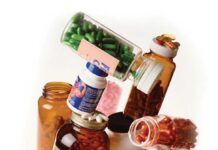![BWNurses[1]](https://www.thestarnews.com/wp-content/uploads/2020/06/BWNurses1-696x387.jpg)
Registered nurse Christina Kelley gathered with a group of about 12 fellow nurses at the Cameron YMCA in East County for a June 7 event with hundreds of protesters in a peaceful march organized by San Diego Unity.
That event was one of many recent protests against police brutality held across San Diego county following a May 25 Minneapolis incident in which George Floyd, a 46-year-old black man died in handcuffs while white police officer Derek Chauvin knelt on his neck for almost nine minutes.
Masked to reduce the spread of COVID-19, dressed in white and wearing an armband bearing a red cross, one Chula Vista nurse said there is immense potential for injury for anyone involved in protests, which led to her organize the San Diego Medical Protest Response group.
“I am a black nurse and a black woman. I went to the (downtown San Diego) protest on May 31 along with another RN who is now a fellow task force member. We didn’t go as medical professionals. While we were there, it went very quickly from a peaceful protest to an agitated, inflamed event.
As we were running for our own safety, flash bangs were being deployed into the crowd and I automatically responded not as a protester but as a nurse,” Kelley said.
While running, she says she could not help but observe the potential for head injuries, broken bones, ruptured eardrums, inflamed eyes and other dangerous situations that can arise when panicked people are running for their own safety.
“I didn’t go to that event as a nurse but this is our community and we have to provide help to all. We decided to start focusing our efforts, we just got a Facebook page and went from four in the group to 200 members, all by word of mouth, grass roots efforts, just nurses talking to other nurses, getting organized,” Kelley said.
They now have nurses from UCSD Medical, Scripps Healthcare, Sharp Hospitals, skilled nursing facilities and other healthcare organizations attend protests connected with the Black Lives Matter movement where there is potential for injury. Kelley says the American Nurses Association has fully endorsed nurses attending protests. ANA P.R. Specialist Keziah Proctor provided a June 1 statement from ANA President Dr. Ernest Grant that reads:
“At this critical time in our nation, nurses have a responsibility to use our voices to call for change. To remain silent is to be complicit. The pursuit of justice requires us all to listen and engage in dialogue with others… Leaders must come together at the local, state, and national level and commit to sustainable efforts to address racism and discrimination, police brutality, and basic human rights.”
The ANA also created a template letter nurses across the nation can present to local law enforcement agencies to inform them of their presence.
Kelley says she believes the May 31 protest in downtown San Diego that ended with violence and injury was driven by fear.
“As a nurse, we work with all types of individuals. Some respond well to nurses who set firm boundaries while others revolt at those same boundaries. That is my feeling about the police in riot gear; they set such a firm boundary that day and it could have been different. There were probably two to three hundred San Diego police in full riot gear, carrying batons and shields, wearing helmets, I cannot remember seeing even one officer in a regular uniform. They were scared, they trapped protesters and injuries happened,” Kelley said.
However, she says there have been several positive interactions with law enforcement officials as well, including one situation where a young woman injured her ankle beyond stability when she fell on a march.
“We saw some excellent collaboration in the Hillcrest march. The woman had a good ankle twist and scrape, she wasn’t able to move. We iced her ankle, cleaned her wound and bandaged it, then SDPD offered to transport her in their cruiser. We even offered SDPD some masks from donated supplies,” Kelley said.
She says in addition to being concerned for others at a protest, nurses are also concerned for their own safety.
“We’ve seen a lot of footage nationally where it appears medics are getting targeted. A nurse in New York was targeted and it’s unsettling- we’re clearly marked by our red crosses and it should be a clear, visual indicator to protesters but also police officers,” Kelley said.
Another big concern she mentions is the challenging internal struggle and resulting dialogue on how torn nurses feel about being out in groups through the COVID pandemic while also feeling the call to mobilize.
“At every protest, we meet, we brief and debrief, we have a walkie talkie system and we go in buddies. During those briefings and debriefings we always address how people are feeling emotionally; our group is made up of all races and caring for COVID patients by day then going on the weekends and being at large protests is…It’s hard,” Kelley said.
She says protesters shouldn’t be holding hands, they need to maintain distance.
“Almost all of us have offered masks and sanitizer to people. We’re trying to still educate on COVID, even in a heightened environment,” Kelley said.
She says the San Diego Medical Protest Response group will continue to offer in any capacity that uses their nursing skills for support as long as demonstrators are out in the community.
“We’ve also drafted goals and we want to have an open dialogue with SDPD. Racial injustice is a pervasive health issue and who better to speak that than nurses?” Kelley questions.
“In the meantime, it doesn’t matter if it’s an agitator, a police officer, a sheriff, a protester, peacefully or not, we’ll be there to provide aid.”














